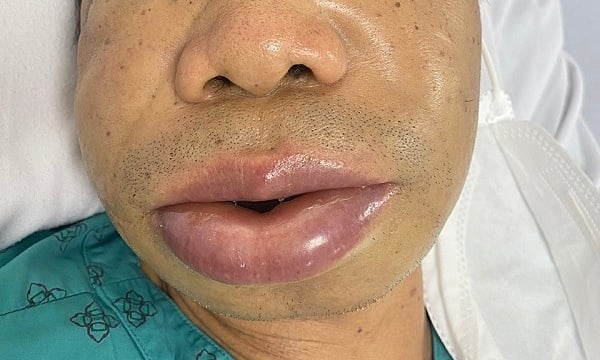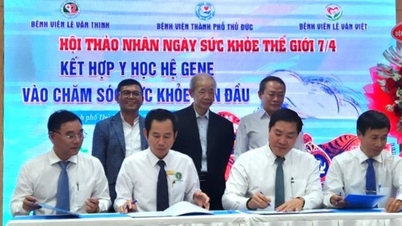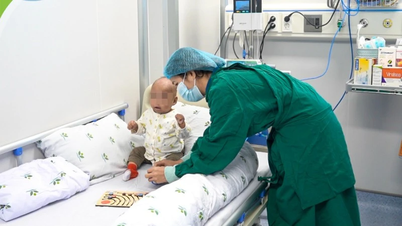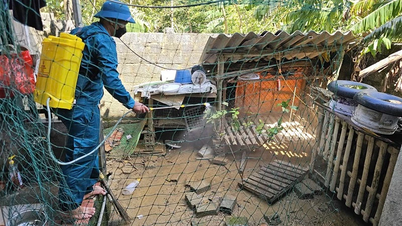Hereditary angioedema is an autosomal dominant genetic disease characterized by multiple episodes of edema commonly affecting the skin, gastrointestinal system, and respiratory tract.
Dr. Nguyen Thi Quynh Trang, Department of Dermatology, Dermatology - Allergy Center, 108 Military Central Hospital, said the incidence of the disease is about 1/50,000 people and usually starts mostly before the age of 20. Currently, the whole country has only 19 patients diagnosed with hereditary angioedema. If the disease is not diagnosed and treated promptly, it will be life-threatening.
Symptoms of the disease include swelling in various areas of the body such as the face, lips, eyes, hands, feet, genitals... recurring many times, without accompanying red rash or hives. Patients may have symptoms of gastrointestinal obstruction such as nausea, vomiting, abdominal pain due to intestinal wall swelling.
Laryngeal edema is a clinical emergency and can be life-threatening due to airway obstruction.

A patient with hereditary facial edema. Photo: Provided by the doctor
Diagnosis is confirmed by C4 complement quantitative testing and C1-INH concentration and function testing. These tests are currently only performed at some medical facilities.
Specific drugs for acute exacerbations are C1 inhibitors, ecallantid or icatibant, all of which are expensive and currently not available in Vietnam. Patients in acute exacerbations are treated with fresh frozen plasma transfusion. Patients with difficulty breathing due to severe laryngeal edema require emergency tracheostomy.
Prophylactic treatment with danazol or tranxemic acid. The physician will consider the need for surgical intervention, as the impact of surgical trauma may aggravate the condition.
Diagnosis requires a combination of specific clinical symptoms and specialized testing. Therefore, patients with suspected symptoms should go to a medical facility for examination and timely treatment to avoid danger to life.
In families with hereditary angioedema, children need to be diagnosed early and receive appropriate intervention.
Le Nga
Source link




![[Photo] Prime Minister Pham Minh Chinh chairs meeting to deploy overcoming consequences of storm No. 10](https://vphoto.vietnam.vn/thumb/1200x675/vietnam/resource/IMAGE/2025/10/3/544f420dcc844463898fcbef46247d16)
![[Photo] Students of Binh Minh Primary School enjoy the full moon festival, receiving the joys of childhood](https://vphoto.vietnam.vn/thumb/1200x675/vietnam/resource/IMAGE/2025/10/3/8cf8abef22fe4471be400a818912cb85)






























































































Comment (0)